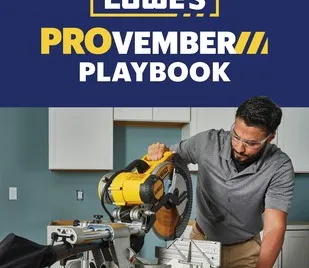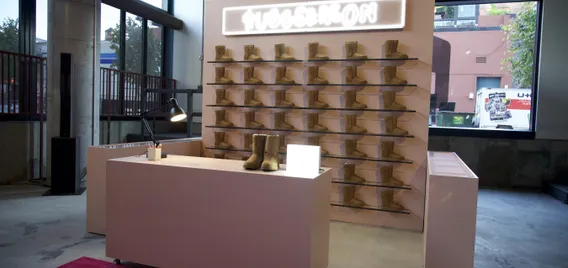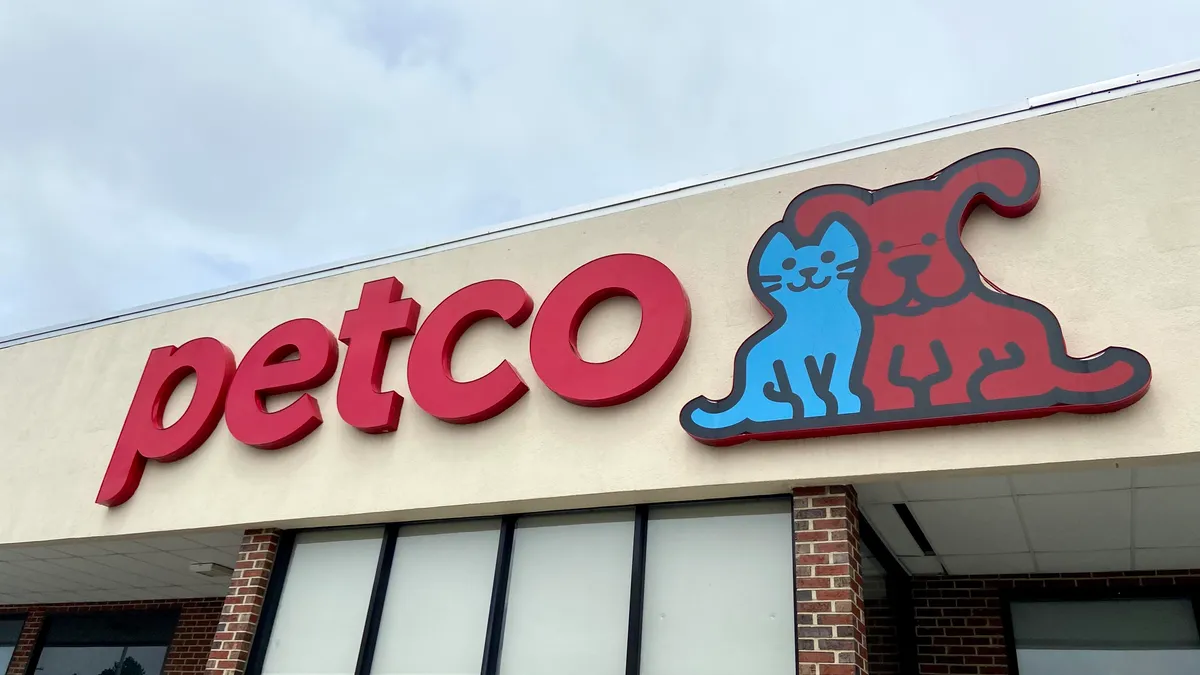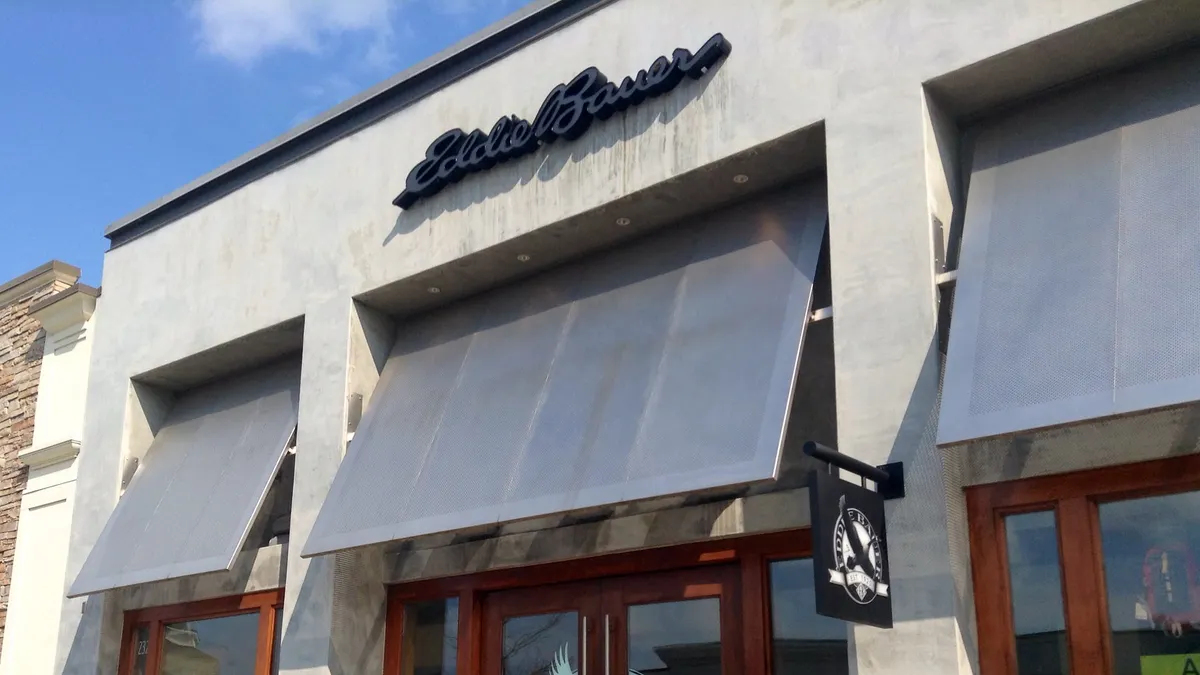It’s been another week with far more retail news than there is time in the day. Below, we break down some things you may have missed during the week and what we’re still thinking about.
From Ugg’s Feel House pop-up to Digital Brands Group’s stock split, here’s our closeout for the week.
What you may have missed
Petco teams up with Nationwide to expand pet health offerings
Building on its position as a health and wellness destination, Petco on Thursday announced a multi-year partnership with Nationwide to provide pet insurance.
The insurance offerings, expected to become available next year, will focus on pet care from Petco’s pharmacies, veterinary hospitals or clinics, and other health programs like the retailer’s Vital Care program. Preventative care like vaccinations and unexpected medical needs are included in coverage.
"Receiving the medical support pets need throughout their lives is critical for both pets and their families," Jenny Wolski, Petco’s senior vice president of omnichannel customer experience, said in a statement. "The customized, data-driven pet insurance solutions we're developing in partnership with Nationwide will be designed to expand families' access to Petco's full range of pet care services, giving them longer and healthier lives together."
The news comes just days after online pet retailer Chewy announced a partnership with Lemonade to provide pet insurance to consumers.
Targeting its pro customers, Lowe’s introduces ‘playbook’
After bringing back its PROvember sales event, Lowe’s on Wednesday rolled out its “PROvember Playbook,” a guide geared toward its professional customers.

The company found that 86% of professionals found inflation a major problem this year and two-thirds expecting it to persist long term, Lowe’s said the guide will feature advice from Lowe's Pro Ambassadors about “making the most with their money.”
The home improvement retailer kicked off its month-long sales event on Thursday, featuring extra savings on tools and materials from DeWalt, Metabo HPT and FLEX; the ability to secure bonus rewards points on purchases; and access to dedicated associates trained to assist this customer segment.
"We know Pros have a lot of challenges to navigate this winter, so we are deepening our dedication through Lowe's PROvember," Tony Hurst, senior vice president of Pro, services and international, said in a statement. "As a true business partner for Pros, we are listening to their needs and adding more value and more meaning to what we offer our Pros so they can get ahead of another busy year.
Digital Brands’ 1-for-100 reverse stock split
After going public last year, Digital Brands Group is planning a reverse stock split that would combine every 100 shares of its common stock into a single share.
The reverse-stock split is a common move by companies with low share prices to stay in compliance with stock markets. Earlier this year, Nasdaq notified Digital Brands it would delist the company’s shares because they didn’t meet the market’s requirements, but Nasdaq granted Digital Brands an extension until Jan. 17 to comply.
Digital Brands, which has continued to rack up losses since its IPO, is still working to close on its acquisition of apparel brand Sundry, announced at the beginning of this year. The company last said it expects to close the deal in November, after the sellers agreed to a major reduction in cash and stock in the sale price.
Shopify third-quarter revenue rises 22%, plans on “becoming profitable again”
Following a second-quarter report showing a $1.2 billion net loss, e-commerce company Shopify came back in Q3 with a smaller $158 million loss and a 22% jump in revenue year over year to $1.4 billion, according to a press release Thursday.
The company has been hard at work launching new products for merchants. Just this month the brand released a new sales tax product designed to help businesses with the time consuming task, as well as new mobile POS hardware.
“We're a company that likes profitability,” Shopify President Harley Finkelstein told analysts on a call Thursday. “If you look over the 7 years since IPO, 5 of those years, we've been profitable. We plan on becoming profitable again.”
Retail therapy
Ugg is exactly how it feels
Ugg this week launched a “multi-sensory community space dedicated to making self expression comfortable to all,” dubbed Feel House. The pop-ups will appear in Brooklyn, New York; Chengdu, China; and Seoul, South Korea this fall.

People enter the Feel House through a sensory tunnel and go into a “sanctuary space” with special audio and lighting installations. A custom scent smells like - you guessed it - a pair of Uggs (really, the scent of suede, leather, apricot, salt and some other things that smell like rich people). Customers can also contribute to an interactive wall by sharing their feelings through art and words, which sounds like an absolute nightmare for introverts, but a thoughtful idea for a brand.
What we are still thinking about
150
That is how many Apple shop-in-shops are now housed inside Target stores after the partnership kicked off with just 17 in early 2021. The retailer and tech giant have deepened their collaboration, as the retailer has with other major brands, including Ulta Beauty and Disney, to create branded experiences inside its stores.
Target is now also offering perks such as free trials of Apple Fitness+ and other services, including Apple Music and Apple TV+, for its Target Circle loyalty members. The Apple shop-in-shops include Apple-trained Target tech consultants and have twice the space for Apple products.
$2 billion
That could be the annual hit to revenue at Adidas now that the sneaker powerhouse has axed its Yeezy collaboration, following the latest string of problematic remarks from longtime collaborator Ye, also known as Kanye West. On Tuesday, the brand said that forgoing its Yeezy sales would mean losing some $246 million in profits this year alone because it sells more during the fourth quarter. Otherwise it doesn’t break out its Yeezy sales, but analysts estimate the label accounted for 10% of its revenue and as much as 15% of its profits due to Yeezy’s strong pricing.
Despite this major loss, Adidas will be fine without the tie-up, according to Morningstar equity analyst David Swartz.
“To add some perspective, even without Yeezy, Adidas ships more than 300 million shoes per year and has a revenue base of about [$20 billion],” Swartz said in emailed comments, adding, “While the decision to end the Yeezy deal was painful, it was necessary and will not bring any risk of financial distress. Historically, Adidas has operated with more than EUR 1 billion in cash and little or no debt on its balance sheet, and we anticipate that this will continue to be the case.”
What we are watching
The disappearance of Yeezy
The Adidas announcement that it was ending its Yeezy partnership and pulling all Yeezy goods reverberated across the industry this week. Foot Locker pulled the sneakers from its shelves at the behest of the sneaker giant, according to Footwear News, and Adidas was reportedly working the phones to get smaller boutiques to take them down as well. Secondhand apparel site The RealReal on Instagram said it will no longer accept the items, although Yeezy x Adidas shoes were still available there at press time.
It’s unclear what will happen in sneaker resale. There was evidence that demand was spiking, though the Los Angeles Times reported that resale prices were plummeting on what are now tarnished goods.
TJX Cos., which runs TJ Maxx, Marshalls and other off-pricers, also made it clear that Yeezy items won’t be found in its stores. That may not have been the most difficult decision, though, as many customers and even some employees were skeptical that they ever were.























